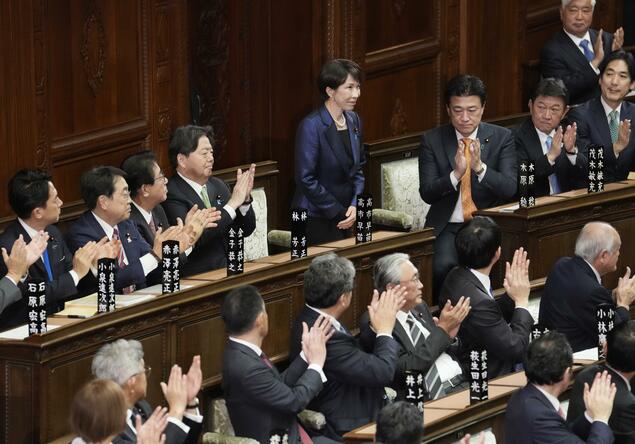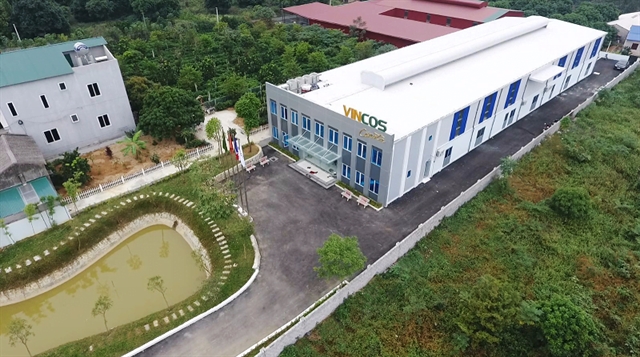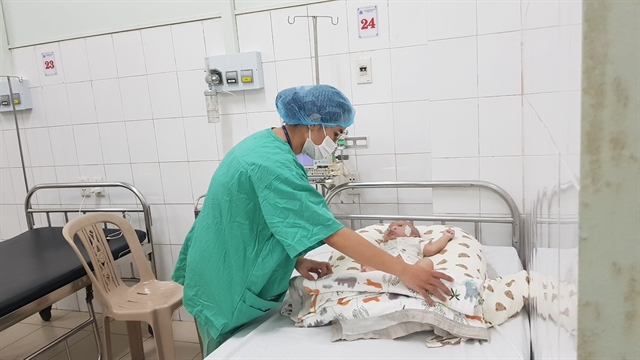 Society
Society
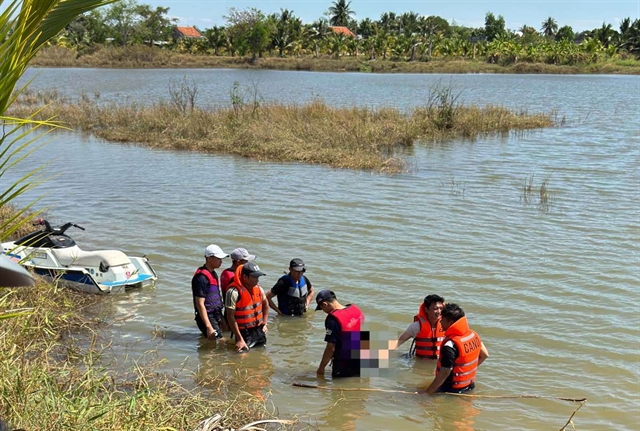
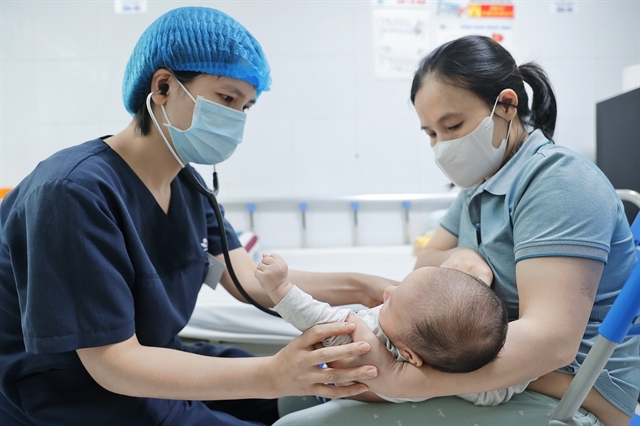 |
| A doctor examines a baby for whooping cough at the National Children Hospital in Hà Nội.—VNA/VNS Photo Minh Quyết |
HÀ NỘI — The Ministry of Health has called on provincial and municipal departments of health to make plans to prevent and control any measles and whooping cough cases nationwide, with particular focus on vaccination campaigns.
The request comes as measles and whooping cough cases in some provinces and cities have increased and are showing complex developments.
Vaccination centres must strictly adhere to vaccination management regulations, ensuring comprehensive updates of vaccination records on the management platform, the ministry noted.
It is necessary to review and ensure adequate funding, medicines, biological products, supplies, chemicals, vaccines, equipment and personnel for regular vaccination activities and epidemic prevention and control efforts, the ministry said.
Regarding medical examination and treatment facilities under the ministry, the ministry demanded readiness in preparing to respond to outbreaks.
Healthcare facilities were required to fully report cases and outbreak clusters on the online Infectious Disease Surveillance and Management System.
That included completing the task force for epidemic prevention and preparing of proactive plans to cope with epidemics at different levels and scales.
The ministry also required intensifying implementation of communication measures on infection prevention, detection methods and handling suspected cases of measles and whooping cough among healthcare workers and community members.
Training in screening, diagnosis, treatment, care and infection control for measles and whooping cough was also needed for healthcare staff to be prepared in case of outbreaks in medical facilities.
Local authorities were directed to enhance communication, implementation and management of measles and whooping cough vaccination for children as well as ensuring sufficient vaccine supplies.
Additionally, close coordination with the local department of information and communications, media agencies and grassroots communication networks was crucial to advise and guide the public on disease prevention measures and ensuring complete vaccination against measles and whooping cough.
Early detection, timely isolation
The medical facilities were told to enhance screening activities for early detection and timely isolation of confirmed or suspected cases of measles and whooping cough.
Mild cases without complications could be instructed for home treatment.
The medical facilities under the health ministry had to issue guidelines and procedures for responding to cases of confirmed or suspected infections at their units, including patient referral, screening examinations, isolation procedures and patient admission to treatment areas.
They had to prepare with isolation treatment areas or temporary isolation areas for patients, who infected or suspected with measles and whooping cough, depending on the scale and directives of local health authorities.
Immediate investigation of outbreaks must be conducted upon the first reported cases of measles and whooping cough, ensuring adequate protective equipment for healthcare staff involved in direct examination, treatment and care of infected or suspected cases of measles and whooping cough.
The ministry directed preventive medicine units to proactively monitor and promptly detect new cases, conduct investigations, identify sources of infection and handle outbreaks of measles and whooping cough.
Hospitals were urged to effectively manage the admission of measles and whooping cough patients, ensure timely treatment to minimise severe cases and fatalities.
The hospitals had to strictly comply with infection control measures to prevent cross-infection and outbreaks of measles and whooping cough.
The healthcare facilities must strictly adhere to infection control measures and implement prevention methods based on transmission routes upon detecting cases of measles and whooping cough infection or suspicion.
Furthermore, it needed to strengthen supervision and support to ensure compliance with regulations and procedures for measles and whooping cough prevention and control among healthcare staff, patients and patient families.— VNS

